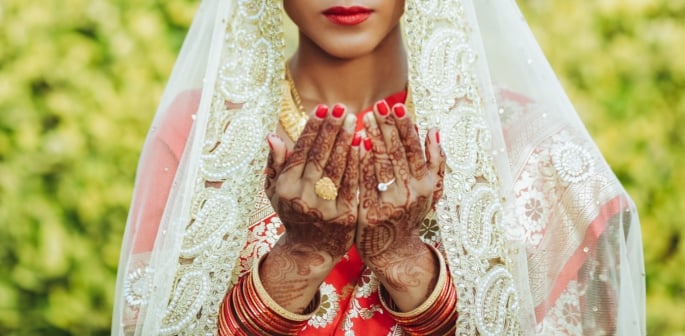"even my mum was against remarriage, which shocked me"
The idea of women remarrying within South Asian communities can be a controversial and complex issue.
Cultural traditions, societal expectations, and family dynamics significantly influence perceptions of remarriage.
Traditionally, socio-cultural norms and ideals discouraged remarriage for women after a divorce or widowhood.
Accordingly, women from Pakistani, Indian, Bangladeshi and Nepalese backgrounds could face barriers and severe judgment when contemplating remarrying.
But with divorce and remarriage becoming more common, particularly in Western countries, has this changed?
DESIblitz explores whether it is still taboo for Desi women to remarry.
Historical Stigma Surrounding Remarriage
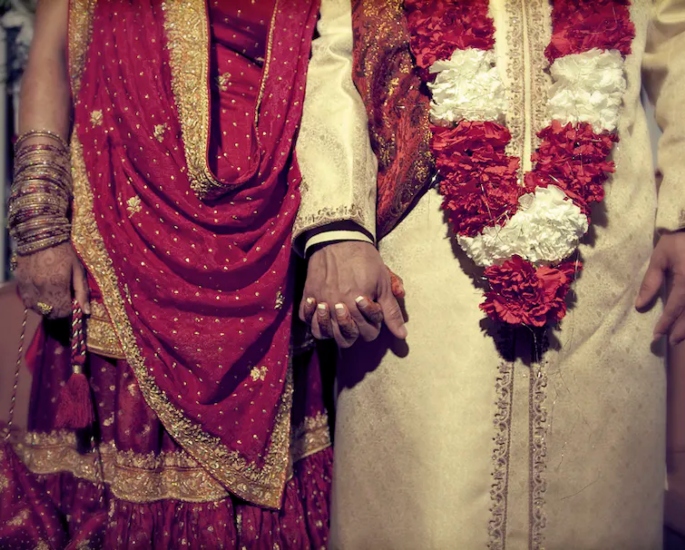
In traditional South Asian societies, widows and divorced women faced severe societal restrictions. Their remarriage was discouraged or outright forbidden.
Cultural practices, like the banning of remarriage for widows in some Desi communities, reinforced gender inequality.
These norms often isolated women, forcing them into a lifetime of widowhood and singlehood.
The stigma has its roots in both religious interpretations and societal control over women’s choices.
While modern influences have powerfully challenged these ideas, remnants of these unequal attitudes persist.
Indeed, women can face greater challenges than their male counterparts when contemplating remarriage.
British Indian Aruna Bansal, the founder of the Asian Single Parents Network (ASPN) CIC, wrote:
“Traditional South Asian societies are deeply rooted in conservative values.”
“Marriage is considered a lifelong commitment and the union of two families rather than just two individuals.
“Divorce, therefore, disrupts the fabric of these tightly-knit communities, resulting in significant shame and social ostracisation for those involved.
“This stifling cultural pressure often compels individuals to endure unhappy marriages rather than confront the consequences of divorce.
“Women, in particular, face a heightened burden of shame and blame in cases of marital dissolution.
“Divorced women are often perceived as damaged goods, leading to diminished marriage prospects and compromised social status.
“While men may also face stigma, the repercussions tend to be less severe.”
For Aruna, gender inequality remains strong in how divorce and remarriage are perceived.
Gender Inequality in Attitudes and Perceptions
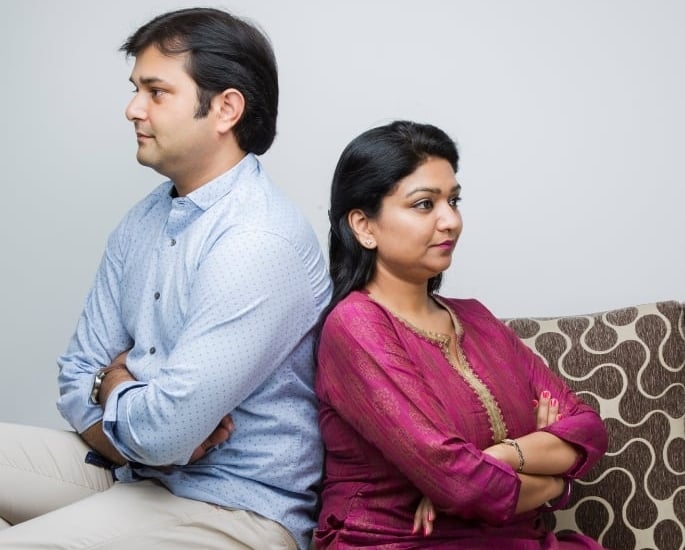
Desi families often encourage widowed or divorced men to remarry. A new partner is seen as essential for caregiving and household management.
In contrast, Desi women can be discouraged from remarrying due to ideas of honour and purity.
British Nepalese Gamya* stated that divorce is very rare in her community. However, her brother, sister and auntie have been divorced.
It is significant to note that while Gamya’s sister and aunt are viewed as divorced, they are not legally divorced.
The family elders dissuaded them from obtaining a formal divorce and encouraged them to “let things be”.
Gamya’s sister has been separated with no contact with her “ex-husband” for 14 years, raising her son as a single parent.
Her aunt has been separated with no contact with her “ex-husband” for six years.
Gamya asserted: “Remarriage for women is heavily frowned upon; it is not seen as very socially acceptable.
“Here, unlike Nepal, my sister and aunt are empowered; they were able to leave their husbands.
“My brother, as a male, divorced, and he was encouraged to remarry, and he did.
“In my sister’s situation, we are the same family, but it was highly discouraged for her.”
“Even my grandma was firmly opposed to remarriage.
“She’s the sweetest and loves my sister so much; we have a very special bond, but she was ‘no, we don’t want that’.
“She loves us, but ideas of purity and honour are so entrenched in her thinking… that overshadows the love, I guess.
“Grandma also thinks this life is better than having a husband and being an outcast in the community with a new man.
“When we have gatherings, like a blessing ceremony, they say so much, ‘Oh wow, you’ve maintained your honour for your son’s sake’ to my sister.
“Stuff like ‘your son is your life’ would be said to her, and for them that is honourable.
“The concept of honour is so strong; even my mum was against remarriage, which shocked me. They reframe it as a positive, her not being remarried and focusing on her son.
“When the husband dies, you are said to be honouring his memory in not marrying. They do not see a reason to remarry like in the case of older widowed women.
“Women’s sensuality and sexuality are very much not even considered. I’m sure my sister has needs, but that’s never acknowledged.”
Gamya’s words highlight how deeply ingrained patriarchal norms continue to shape expectations of Desi women’s actions and conduct.
While men are often encouraged to rebuild their lives through remarriage, women face social barriers that prioritise family “honour” over personal desires and wants.
These double standards perpetuate inequality and position remarriage as a taboo for some Desi women.
The Role of Family in Maintaining or Changing the Status Quo
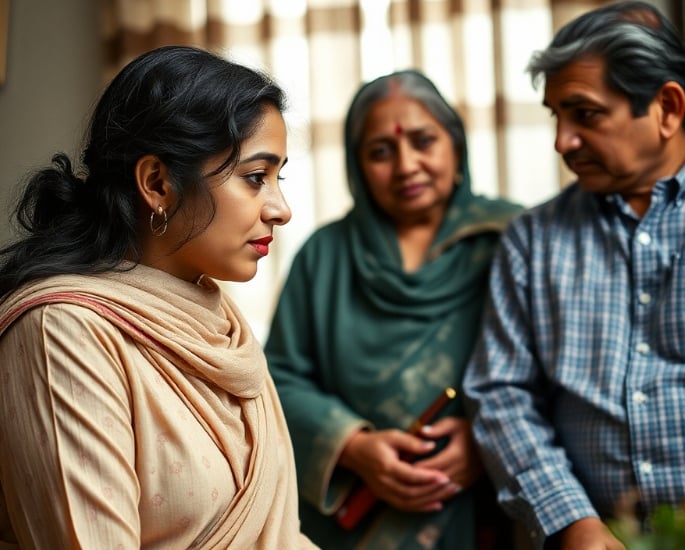
Remarriage is becoming more common among Desi women in some communities and families. However, taboos around remarriage remain.
The family plays a crucial role in whether remarriage is accepted or the taboo is reinforced.
Families, particularly in South Asian communities, are often deeply involved in women’s personal decisions.
Canadian Indian Reva* said: “Some still judge and frown, but I think it depends on families more than anything.
“I was supported in my decision to remarry. The family I was close to, including my parents, said, ‘Ignore the stupid whispers’.
“We knew I’d done nothing wrong, so why shouldn’t I remarry?
“I know it’s not like that for all.
“I have friends and have read stories where Asian women, especially with kids, are told to focus on kids and forget remarriage.”
A recent viral story on social media featured a Pakistani woman named Aisha and her second marriage. The story gained widespread attention because of the strong support she received from her two adult sons.
View this post on Instagram
The family’s emotional journey has resonated with many, offering an inspiring message about love, family and the importance of happiness.
The sons’ support is now being celebrated online, inspiring many and challenging societal norms surrounding remarriage for women.
Family approval and advice can be a deciding factor in whether South Asian women remarry.
Some can face pressure from relatives to conform to traditional expectations, while others can gain encouragement and even pressure to remarry.
British Bengali Shakeria* stated:
“Women can be judged for remarrying, but there is a contradiction.”
“If, like me, you married outside your ethnicity and your family disapproved, you can face pressure to remarry.
“Since my separation, my family have been at me to remarry. As a Bengali Asian woman, you can’t win sometimes.
“They wouldn’t expect me to leave my son and remarry, but they think me and my son need a man.”
Shakeria’s words resonated with deep frustration due to the gender biases that manifest through her family’s attitudes to remarriage.
The pressure to remarry has made Shakeria distance herself from her family. She is determined to show them she can take care of herself and her son.
The Taboo around Remarriage for Women
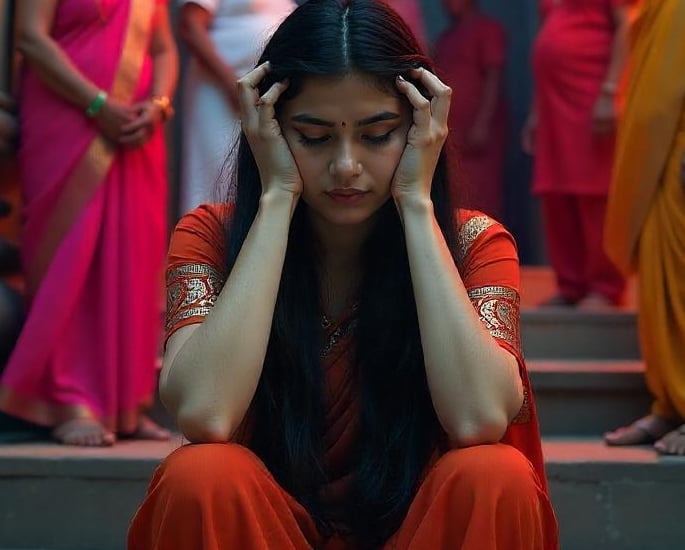
Remarriage for Desi women remains a sensitive and multifaceted issue, deeply influenced by cultural, societal, and familial dynamics.
Traditional norms often perpetuate the stigma, framing remarriage as problematic and overlooking women’s personal needs and desires.
Not remarrying can be considered honourable, especially when children are involved, as with Gamya’s sister.
Women, in particular, can play a key role in helping maintain the status quo or dismantling it.
Indeed, this was seen through Gamya’s words and how it was prevailingly women praising her sister for not remarrying.
There remains a lack of recognition of how a Desi woman’s desire for intimacy may be a deciding factor to remarry. Another sign of Desi women’s sexuality and desires remaining taboo.
Experiences and reflections like Gamya’s, Reva’s and Shakeria’s demonstrate the varied responses within families to women remarrying.
While some uphold patriarchal values, others challenge biases, supporting women and empowering them to make decisions.
Family support, as seen in Aisha’s viral story, can positively shake societal perceptions and provide hope for change.
Ultimately, dismantling the taboo requires a collective effort to prioritise women’s happiness and independence, ensuring they can navigate life on their own terms.
The discussion surrounding remarriage for Desi women underscores persistent challenges yet also reflects ongoing and progressive change.
While societal pressures and patriarchal values often dominate, families and communities have the power to help normalise remarriage.
To dismantle the stigma around remarriage for Desi women, it is essential to challenge patriarchal norms and acknowledge women’s desires and their right to choose.




















































